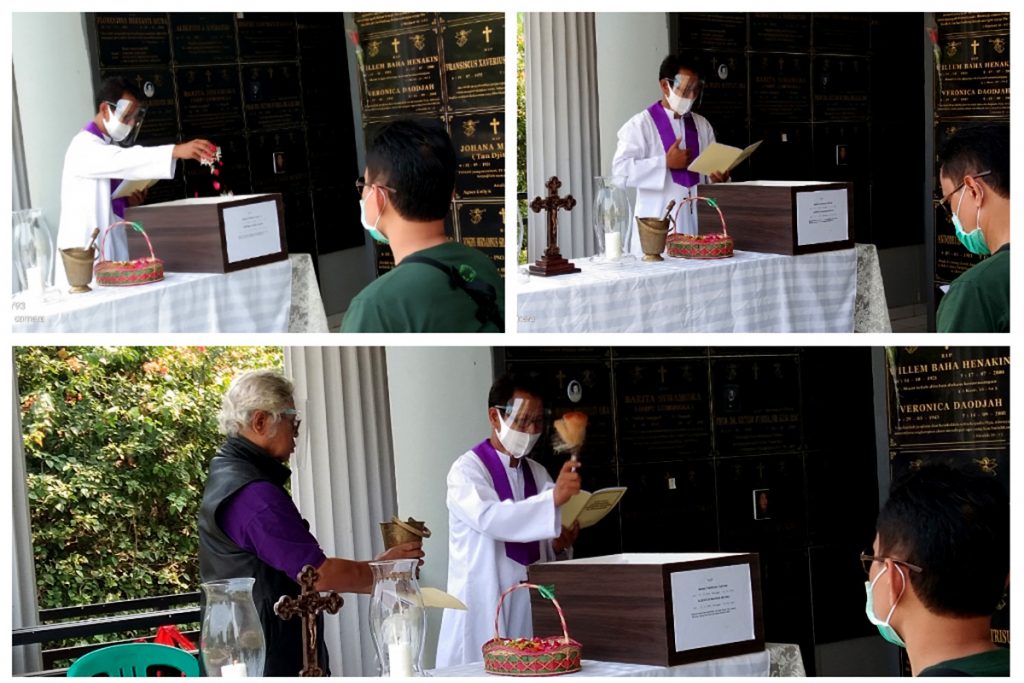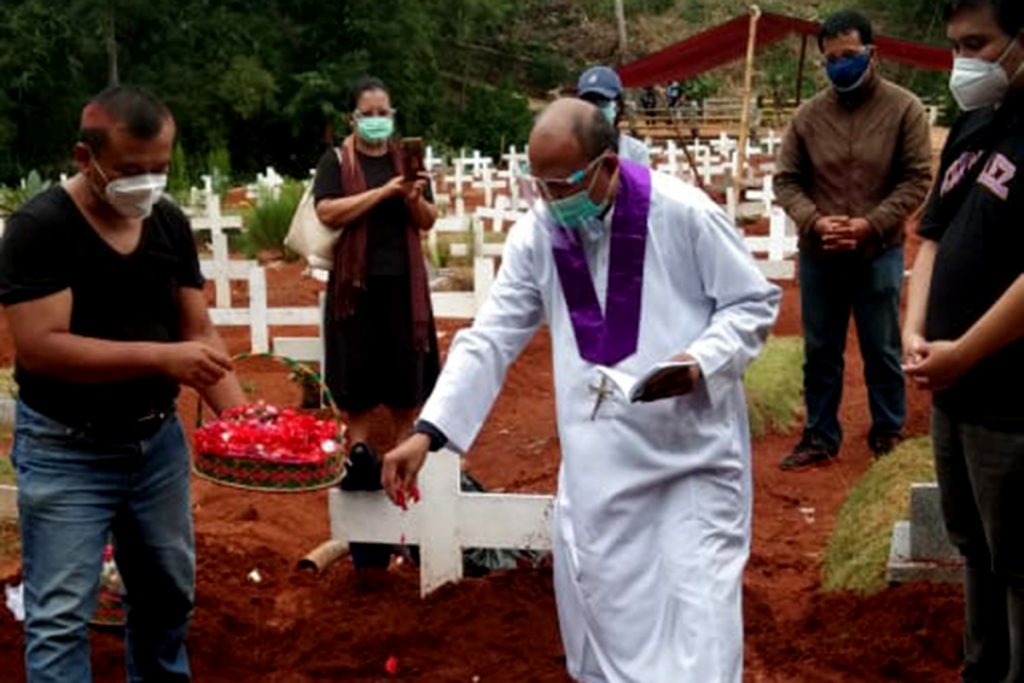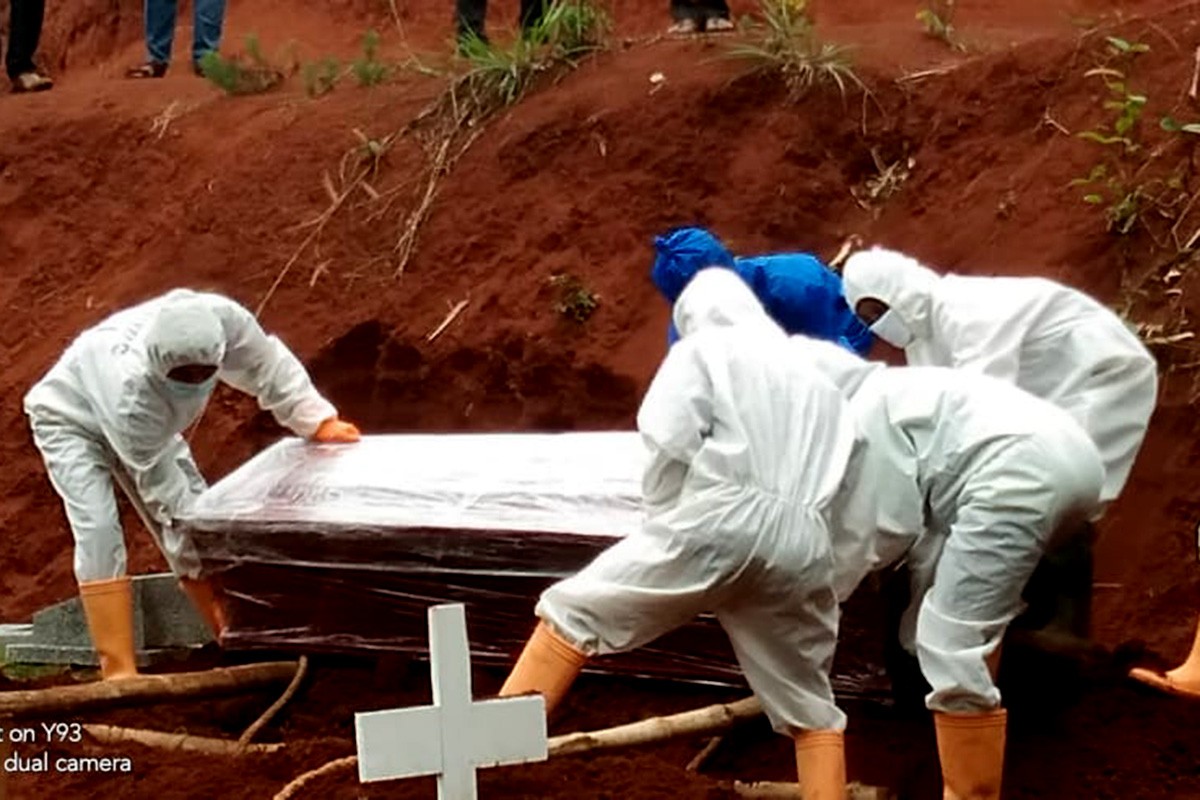For years, an Indonesian Catholic woman in West Java has been showing her community how one can care and love others until the end, especially during this time of the pandemic.
Monika Ariani Sulistyowati, 50, has been caring for the dead with compassion and respect. She says it has become a way of practicing her Christian faith.
It has also become an opportunity for her to give a departed neighbor, community member, Christian or otherwise, the respect and dignity owed to him or her as “God’s creation.”
She believes that doing good to others, especially the needy and the dead, brings spiritual nourishment to her life.
Monika, who lives in St. Herculaneum Parish in Depok in Bogor District, West Java, recalls how when she was young she never felt “motherly love.”
“I was brought up by my mother’s elder sister,” she told LiCAS.news. Monika is the 11th of 12 children.
In the not so distant past, people in Indonesia believe that the more children one has, the wealthier one becomes.
Not growing with her mom, Monika’s relationship with her mother was not that memorable.
Even her marriage to a former seminarian, Thomas Suhardjono, was not supported by the mother. It became a serious emotional “turmoil” for Monika.
One day, her mother became ill, and the situation changed.
Monika was the only one who can care for her mom back in her hometown in Yogyakarta in Central Java, leaving behind her own family in Depok.
It took almost a month for the woman to care for her sick mother until she died.
“It was a very touching moment because my mom breathed her last on my lap,” recalls Monika.
It ignited something in her, something she describes as “compassion” that moved her to take care of her mom, even preparing her personally for burial.
Then she asked herself: “Why not make preparing the dead for burial a personal mission, a chance to serve others?”

A housewife and active member of her parish, Monika thought of making the care for the dead a “humanitarian service,” especially for the needy.
She started in nearby villages, helping poor families prepare funerals. Later on, Monika expanded to other communities.
“My intention is simple,” she says. “I want to extend my helping hands to those who lost their loved ones.”
The “emotional desire” to help was born from her experience of her own mother’s death when no one else but her had to do everything.
Monika has the support of her husband. After his retirement in 2019, Thomas got involved with his wife’s mission.
“I joined the pastoral service to commit ourselves in the St. Herculaneum Parish Church,” he says.
The couple serves the church 24/7, or whenever a family needs a helping hand when one dies, without prejudice to race or religion.
There were even times that families of the dead would ask the couple to bring the remains of their loved ones home to other towns or provinces.
“My wife would take care of the body, wash it, and dress it,” says Thomas.
“My main task is to perform prayers and prepare the liturgy with the approval of the parish,” he adds.
Thomas is proud of his wife’s “humanitarian service” that inspired other people, including the couple’s three children.

During the pandemic, the situation became difficult for Monika and Thomas. There was fear of getting the virus and funerals have been restricted.
With their parish priest, Thomas would usually rush to the cemetery ahead of a convoy of ambulances to make sure that the graves are blessed.
“When the priest is not available, I would perform my pastoral service,” he says.
Recognizing their invaluable service to the community, the local government of Depok gave the couple their COVID-19 vaccines ahead of others.
Aside from burying the dead, the couple also helps families exhume the remains of loved ones for transfer to a mausoleum to have more space in the cemetery.
As the Catholic Church declares the Year of Saint Joseph, Monika and Thomas join the community in prayer as they continue to encourage others to follow the example and the spiritual values of Saint Joseph who helped his community in Nazareth.







